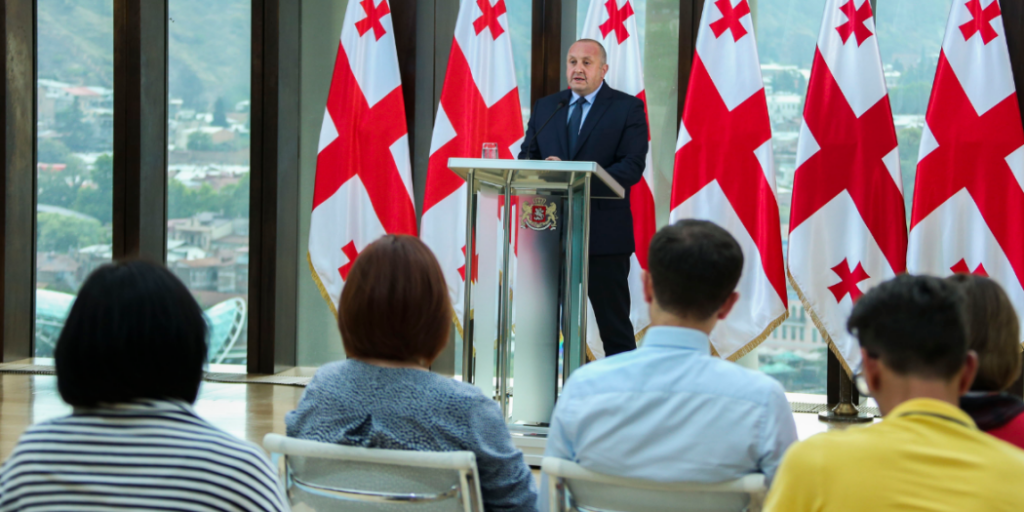The presidential administration will launch from August 6 consultations for selecting the candidacy of the Supreme Court chair, President Giorgi Margvelashvili announced yesterday, shortly after Nino Gvenetadze stepped down from her post.
Speaking at a special press briefing, Margvelashvili said he was “concerned” by Gvenetadze’s unexpected resignation, considering “the developments that preceded her decision.”
“Many judges and many non-judge members of the High Council of Justice (the body overseeing the judiciary) have recurrently emphasized on the difficult state of affairs in the court system; we have been hearing the same from our international partners,” he stressed.
Margvelashvili noted that problems of the judiciary “represent one of the biggest challenges facing the country’s democracy.” “Either we respond to it or remain in a vicious circle that has created a lot of hurdles for the state and the citizens,” he added.
The President then called on all stakeholders, particularly the legal experts, to engage in “wide and open” consultations for selecting a candidate, “who will have necessary professional abilities and moral integrity to begin improving the court system.”
Reactions on Gvenetadze’s resignation
Nino Gvenetadze, who was elected for a 10-year term in March 2015, announced her resignation on August 2, citing health-related problems and the need to get medical treatment abroad.
The political party interpretations, however, differed from Gvenetadze’s account.
MP Nika Melia of the United National Movement said the real reason for Gvenetadze’s resignation was “a confrontation between [various] clans [in the judiciary],” and that the decision “to dismiss and replace” her was made by GDDG leader Bidzina Ivanishvili in favor of “a more loyal” Chinchaladze-Murusidze clan.
MP Giga Bokeria of the European Georgia echoed the sentiments, stressing Gvenetadze was defeated in a confrontation of two clans “on who would serve Bidzina Ivanishvili.”
Justice Minister Tea Tsulukiani denied the claims. “I completely rule out that Gvenetadze’s decision is linked to any internal processes,” she noted.
A group of nine local rights watchdogs commented on the matter as well, saying “although Nino Gvenetadze failed to adequately respond to the problems existing in the judiciary , it was still clear that there were disagreements between her and the influential group of judges.”
The rights groups then called on the President and the Parliament to recognize that the situation in the judiciary system is “grave,” and urged the two institutions to ensure timely appointment of new Supreme Court chair, “who will be able to assess the situation objectively and take principled steps to address the challenges.”
In the new Constitution, which is to come to force upon new president’s inauguration later this year, the right to nominate new chairmanship candidate will no longer be in presidential powers, and will instead be mandated to the High Council of Justice, the body overseeing the judiciary.
This post is also available in: ქართული (Georgian) Русский (Russian)

